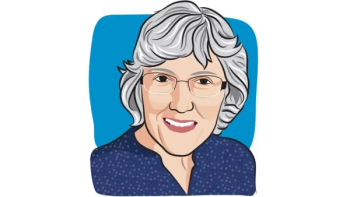
Preventing Opioid Addiction in Patients With Cancer
Jaron Mark, M.D., a gynecologic oncology fellow at Roswell Park Comprehensive Cancer Center, discusses the opioid crisis, and the steps that his institution is taking to combat potential addiction in women who undergo surgery for gynecologic cancer.
Jaron Mark, M.D., a gynecologic oncology fellow at Roswell Park Comprehensive Cancer Center, discusses the opioid crisis, and the steps that his institution is taking to combat potential addiction in women who undergo surgery for gynecologic cancer.
According to Mark, the crisis started in more than three decades ago when research was published in the New England Journal of Medicine stating that opioid addiction is low in hospitalized patients. People misinterpreted these findings to mean that opioids were not addictive, and by the 1990s, these drugs were being heavily marketed and prescribed.
At Roswell Park, Mark and his team found that many women who had surgery for their cancer reported not using the opioids that were prescribed to them. So, they stopped prescribing opioid pills for patients undergoing minimally invasive surgery or minor outpatient procedures.



